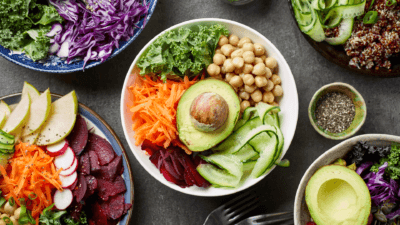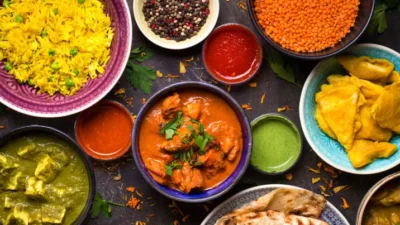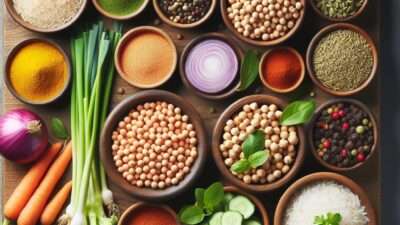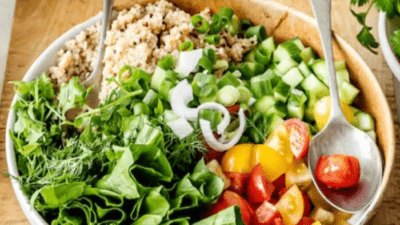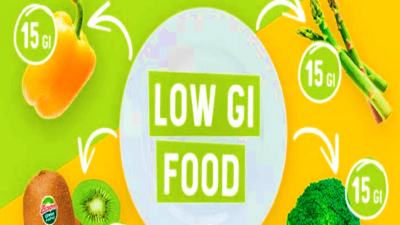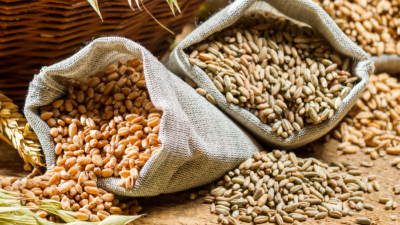Diabetes has emerged as a major public health concern in India, with the country being dubbed the “diabetes capital of the world.” According to the International Diabetes Federation, India had approximately 77 million adults living with diabetes in 2019, and this number is projected to rise to 101 million by 2030.
The prevalence of diabetes in India is driven by a combination of factors, including rapid urbanization, sedentary lifestyles, unhealthy dietary patterns, and genetic predisposition. The Indian diet, which is often rich in carbohydrates and saturated fats, coupled with a lack of physical activity, contributes significantly to the increased risk of developing type 2 diabetes.
Diabetes can have severe consequences for an individual’s health if left unmanaged. It can lead to complications such as cardiovascular diseases, nerve damage (neuropathy), kidney disease (nephropathy), eye damage (retinopathy), and an increased risk of foot ulcers and amputations. These complications not only impact the quality of life but also place a substantial economic burden on individuals, families, and the healthcare system.
The Role of Sugar in Diabetes
Sugar, a simple carbohydrate, is a significant contributor to elevated blood sugar levels in individuals with diabetes. When we consume foods containing sugar, our bodies break it down into glucose, which enters the bloodstream. For people without diabetes, the pancreas releases insulin, a hormone that helps cells absorb and utilize glucose for energy. However, in individuals with diabetes, either the body does not produce enough insulin (Type 1 diabetes) or the cells become resistant to insulin (Type 2 diabetes), leading to high blood sugar levels (hyperglycemia).
Uncontrolled high blood sugar levels can have severe consequences, including an increased risk of heart disease, stroke, kidney damage, nerve damage, and vision problems. Therefore, managing sugar intake is crucial for individuals with diabetes to maintain healthy blood sugar levels and prevent or delay complications.
Limiting added sugars found in processed foods, sweetened beverages, and desserts is essential for diabetes management. Even natural sugars found in fruits and honey should be consumed in moderation, as they can still contribute to elevated blood sugar levels. By controlling sugar intake and maintaining a balanced diet rich in fiber, lean proteins, and healthy fats, individuals with diabetes can better regulate their blood sugar levels and improve overall health outcomes.
What Are Sugar Substitutes?
Sugar substitutes, also known as artificial sweeteners or non-nutritive sweeteners, are substances used as alternatives to regular sugar (sucrose) to sweeten foods and beverages. They are designed to provide a sweet taste without contributing significant calories or affecting blood sugar levels, making them appealing for people with diabetes or those trying to manage their weight.
There are several types of sugar substitutes:
- Artificial Sweeteners: These are synthetic compounds created in laboratories. Some examples include:
- Saccharin
- Aspartame
- Sucralose
- Acesulfame potassium (Ace-K)
- Natural Sweeteners: These are derived from natural sources and are often considered more natural alternatives to artificial sweeteners. Examples include:
- Stevia
- Monk fruit sweeteners
- Erythritol
- Sugar Alcohols: These are carbohydrates that are partially absorbed by the body and provide fewer calories than regular sugar. Examples include:
- Xylitol
- Sorbitol
- Mannitol
The primary benefit of sugar substitutes is their ability to provide sweetness without contributing significant calories or raising blood sugar levels, making them suitable for individuals with diabetes or those trying to manage their weight. However, some potential drawbacks include:
- Potential side effects like headaches, digestive issues, or allergic reactions (depending on the type of substitute)
- Aftertaste or a different taste profile compared to regular sugar
- Concerns about long-term safety and potential health risks (although approved substitutes are generally recognized as safe by regulatory bodies)
It’s important to note that while sugar substitutes can be helpful in moderating sugar intake, they should be used in moderation and as part of an overall balanced diet and healthy lifestyle.
Natural Sugar Substitutes
Natural sugar substitutes are derived from plant sources and offer a healthier alternative to refined sugar for individuals with diabetes. These substitutes are generally low in calories, have a minimal impact on blood sugar levels, and provide a sweet taste without the associated risks of sugar consumption.
Stevia: Stevia is a natural sweetener extracted from the leaves of the Stevia rebaudiana plant. It is calorie-free, does not affect blood sugar levels, and has been approved for use in India. Stevia is heat-stable, making it suitable for cooking and baking. However, some people may find it to have a slightly bitter aftertaste.
Monk Fruit Sweetener: Monk fruit sweetener is derived from the monk fruit, a small melon native to Southeast Asia. It is naturally sweet, calorie-free, and does not raise blood sugar levels. Monk fruit sweetener is suitable for Indian cooking and baking, and it has a clean, sweet taste without any aftertaste.
Erythritol: Erythritol is a natural sugar alcohol found in fruits and fermented foods. It has a clean, sweet taste similar to sugar and is absorbed slowly by the body, resulting in a minimal impact on blood sugar levels. Erythritol is suitable for Indian cooking and baking, but it may cause digestive issues in some individuals if consumed in large quantities.
Xylitol: Xylitol is another sugar alcohol derived from birch trees and other plant sources. It has a similar sweetness to sugar and a low glycemic index, making it a good option for people with diabetes. Xylitol can be used in Indian cooking and baking, but it should be consumed in moderation as it may cause digestive discomfort in some individuals.
These natural sugar substitutes offer a healthier alternative to refined sugar for Indians with diabetes. They can be incorporated into traditional Indian recipes and desserts, allowing individuals to enjoy sweet treats while managing their blood sugar levels effectively.
Artificial Sugar Substitutes
Artificial sugar substitutes, also known as non-nutritive sweeteners, are synthetic compounds that provide sweetness without adding calories or carbohydrates. These substitutes are commonly used by individuals with diabetes or those seeking to reduce their sugar intake. Three of the most widely used artificial sweeteners are aspartame, sucralose, and saccharin.
Aspartame: Aspartame is an artificial sweetener that is approximately 200 times sweeter than sugar. It is widely used in beverages, chewing gum, and various food products. While aspartame is generally considered safe for consumption, some individuals may experience side effects such as headaches, dizziness, or digestive issues. Additionally, aspartame breaks down at high temperatures, making it unsuitable for baking or cooking.
Sucralose: Sucralose is a highly stable artificial sweetener that is around 600 times sweeter than sugar. It is often used in baked goods, beverages, and processed foods. Sucralose is heat-stable, making it suitable for cooking and baking. However, some individuals may experience digestive discomfort or allergic reactions when consuming sucralose.
Saccharin: Saccharin is one of the oldest artificial sweeteners, with a sweetness level around 300-500 times greater than sugar. It is commonly used in beverages, candies, and as a tabletop sweetener. While saccharin has a distinct bitter aftertaste, it is generally considered safe for consumption. However, some studies have suggested potential links between saccharin and cancer, although the evidence is inconclusive.
When it comes to suitability for Indian diets, artificial sweeteners can be a viable option for individuals with diabetes or those looking to reduce their sugar intake. However, it is crucial to consume these sweeteners in moderation and consult with a healthcare professional, especially if you have any underlying medical conditions or concerns.
Sugar Alcohols
Sugar alcohols are a type of sugar substitute that are derived from plant sources and are partially absorbed by the body. They are lower in calories than regular sugar and have a lower impact on blood sugar levels, making them a popular choice for people with diabetes. However, they can cause digestive issues like bloating and diarrhea if consumed in excess.
Xylitol is a sugar alcohol that has a similar sweetness to sugar but with 40% fewer calories. It has a low glycemic index, making it suitable for people with diabetes. Xylitol is found naturally in fruits and vegetables and is often used in sugar-free chewing gums and candies. However, it can cause digestive discomfort if consumed in large amounts.
Erythritol is another sugar alcohol that is becoming increasingly popular as a sugar substitute. It has a clean, sweet taste and is virtually calorie-free. Erythritol is absorbed slowly by the body and does not spike blood sugar levels, making it a safe option for people with diabetes. It is also less likely to cause digestive issues compared to other sugar alcohols.
Sorbitol is a sugar alcohol that is found naturally in fruits like apples, pears, and prunes. It has a similar sweetness to sugar but with fewer calories. However, sorbitol can cause digestive issues like bloating and diarrhea, especially when consumed in large amounts. It may not be the best choice for people with irritable bowel syndrome (IBS) or other digestive disorders.
When it comes to Indian diets, sugar alcohols can be a useful alternative to regular sugar, especially for people with diabetes or those looking to reduce their calorie and sugar intake. However, it’s important to consume them in moderation and to be aware of any potential digestive issues. Incorporating sugar alcohols into traditional Indian desserts and sweets can be a way to enjoy the flavors while managing blood sugar levels.
Comparison of Sugar Substitutes
When it comes to sugar substitutes, there are several factors to consider, including taste, cost, availability, impact on blood sugar levels, and potential side effects. Here’s a comprehensive comparison:
Taste: Natural sweeteners like stevia and monk fruit tend to have a more similar taste to regular sugar compared to artificial sweeteners like saccharin, aspartame, and sucralose. However, some people may notice a slight aftertaste with certain sugar substitutes.
Cost: Sugar alcohols like erythritol and xylitol are generally more expensive than regular sugar, while artificial sweeteners like saccharin and aspartame are relatively inexpensive. Natural sweeteners like stevia and monk fruit can vary in cost depending on the brand and form (powder, liquid, etc.).
Availability: Regular sugar and artificial sweeteners like saccharin, aspartame, and sucralose are widely available in most supermarkets and grocery stores. Natural sweeteners like stevia and monk fruit, as well as sugar alcohols like erythritol and xylitol, may be found in health food stores or specialty sections of larger supermarkets.
Impact on Blood Sugar Levels: Most sugar substitutes have little to no impact on blood sugar levels, making them suitable for individuals with diabetes. However, some sugar alcohols like maltitol and sorbitol can slightly raise blood sugar levels and should be consumed in moderation.
Potential Side Effects: Artificial sweeteners like saccharin, aspartame, and sucralose are generally considered safe for consumption by regulatory authorities, but some individuals may experience side effects like headaches or digestive issues. Sugar alcohols like erythritol and xylitol can cause digestive discomfort if consumed in large quantities. Natural sweeteners like stevia and monk fruit are generally well-tolerated, but some people may experience an aftertaste or digestive issues.
When choosing a sugar substitute, it’s essential to consider your personal preferences, dietary needs, and any potential side effects. Consulting with a healthcare professional, particularly for individuals with diabetes or other health conditions, is recommended to make an informed decision.
Incorporating Sugar Substitutes into Indian Cuisine
Sugar substitutes can be seamlessly incorporated into traditional Indian dishes, allowing individuals with diabetes to enjoy the rich flavors of their cultural cuisine without compromising their health. Here are some tips for using sugar substitutes in Indian cooking:
Desserts and Sweets:
- Replace sugar with erythritol, stevia, or monk fruit sweetener in popular desserts like gulab jamun, rasmalai, and kheer.
- Experiment with date syrup or coconut sugar in moderation for a natural sweetness in halwa, barfi, and ladoos.
- Use unsweetened yogurt or coconut milk as a base for sugar-free shrikhand or rabri.
Savory Dishes:
- Substitute sugar with a pinch of stevia or monk fruit sweetener in chutneys, marinades, and curries that require a touch of sweetness.
- Opt for unsweetened versions of ingredients like tomato puree or ketchup when preparing gravies or sauces.
Beverages:
- Sweeten your chai or coffee with stevia, monk fruit sweetener, or a few drops of vanilla extract.
- Infuse water with fresh fruits, herbs, and a touch of erythritol or stevia for a refreshing, sugar-free drink.
Baking:
- Substitute equal amounts of erythritol or a blend of erythritol and monk fruit sweetener for sugar in traditional Indian breads like naan, paratha, or roti.
- Use applesauce, mashed bananas, or unsweetened yogurt as a replacement for sugar in cakes, muffins, or quick breads.
Remember, when using sugar substitutes, start with small amounts and gradually adjust to your desired level of sweetness. Additionally, be mindful of portion sizes and incorporate a variety of nutrient-dense foods into your diet for optimal health management.
Moderation and Balanced Diet
While sugar substitutes can be a helpful tool for managing diabetes, it’s essential to remember that moderation is key. No single ingredient or food group should be consumed in excess, even if it’s advertised as “healthy” or “sugar-free.” A balanced diet that incorporates a variety of nutrient-dense foods, including whole grains, lean proteins, fruits, and vegetables, is crucial for overall health and diabetes management.
Portion control is also vital when incorporating sugar substitutes into your diet. Many sugar-free products may still contain significant amounts of calories, carbohydrates, and other nutrients that can impact blood sugar levels. Always read nutrition labels carefully and consult with a healthcare professional or registered dietitian to determine appropriate serving sizes.
Exercise plays a vital role in diabetes management and should be an integral part of any healthy lifestyle. Regular physical activity can help improve insulin sensitivity, lower blood sugar levels, and promote weight management. It’s recommended to engage in a combination of aerobic exercises, such as brisk walking, swimming, or cycling, and strength training exercises to maintain overall fitness and well-being.
Lastly, it’s crucial to work closely with your healthcare team, including your doctor, dietitian, and diabetes educator, to develop a personalized diabetes management plan. They can provide guidance on the appropriate use of sugar substitutes, meal planning, and any necessary adjustments to your medication or insulin regimen based on your individual needs and preferences.
Conclusion
Sugar and its substitutes play a crucial role in managing diabetes, a condition that affects a significant portion of the Indian population. While sugar should be limited, not all substitutes are created equal. Each option has its own set of pros and cons, and it’s essential to choose wisely based on individual needs and dietary preferences.
For those seeking natural alternatives, stevia, monk fruit sweetener, and coconut sugar offer promising options, but moderation is still key. Artificial sweeteners like sucralose, aspartame, and saccharin provide a zero-calorie solution but may have potential side effects for some individuals.
Sugar alcohols, such as erythritol and xylitol, can be a good middle ground, but they should be consumed in moderation due to potential digestive issues. Ultimately, the best approach is to strike a balance and incorporate a variety of sugar substitutes into a healthy, balanced diet that includes whole, nutrient-dense foods.
It’s essential to consult with a healthcare professional, especially for individuals with diabetes or other health conditions, to determine the most suitable options. Remember, while sugar substitutes can be helpful in managing blood sugar levels, they should not be seen as a free pass to overconsume sweet treats. The key is moderation, portion control, and overall dietary balance.

